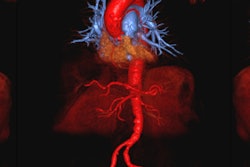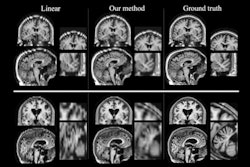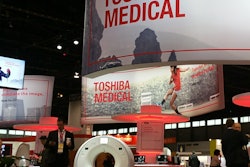Dear AuntMinnie Member,
As we go to press with this edition of the Letter from the Editor, news is breaking that the U.S. Senate has decided to postpone a vote on its legislation to repeal the Affordable Care Act until after the July 4 holiday.
The bill's prospects were already wavering after several senators said they would not vote for the legislation, and after the Congressional Budget Office projected that it would result in 22 million Americans losing healthcare coverage by 2026. Check back on our site for more coverage of this developing story, or follow us on Twitter for the latest updates.
New gadolinium findings
This week brings new findings on one of the most serious issues in radiology right now: the deposition of residual gadolinium in patients who have received MRI contrast.
In a study published today in Radiology, researchers from the Mayo Clinic in Rochester, MN, reported results from a small number of patients who had residual gadolinium in their brains despite having no intracranial abnormalities.
The findings are important because they indicate that gadolinium could be crossing the blood-brain barrier even in patients with no brain pathology. The implication is that gadolinium deposition could be occurring even in normal patients -- a sobering thought. Read more by clicking here.
While you're in our MRI Community, be sure to check out this article on whether an iron-based MRI contrast agent -- ferumoxytol -- could prove to be an alternative to gadolinium for some patients.
Get these stories and more by visiting our MRI Community at mri.auntminnie.com.
Are mammography's 'harms' really that harmful?
The battle over mammography screening is starting to become medicine's "Game of Thrones," with a cast of hostile players warring over a shifting landscape. The past week has included a number of new developments, which we bring you in our Women's Imaging Community.
First up is a new study that queried women's attitudes toward the benefits and harms of breast screening. Researchers found that mammography's benefits were far more important to women than its harms -- much to the consternation of the research team, which blamed the results on a "lack of balance" from screening proponents. They suggested new efforts to "educate" women so they make more "informed" decisions about their health. Read more by clicking here.
There were also new developments in guidelines on breast screening. The American College of Obstetricians and Gynecologists (ACOG) made a slight adjustment to its guidelines, recommending that women be offered screening starting at 40, but stating that they should decide whether to be screened only after a shared decision-making process with their physician.
It's a subtle but significant change from ACOG's previous position, which recommended routine screening beginning at age 40. The change underlines the questions regarding mammography's effectiveness in younger women: Screening still saves lives in this group, but it's not as effective as in women 50 and older. Read the story by clicking here.
On the other hand, the American College of Radiology (ACR) reaffirmed its unwavering support for annual mammography for average-risk women starting at age 40 with updated guidelines released June 23. The ACR believes that science supports the benefits of early detection -- read more by clicking here, or visit the community at women.auntminnie.com.




















